Introduction to the Rental Business
In today’s fast-paced, sharing-focused world, the rental business has emerged as a lucrative and sustainable way to make money. Nowadays the options are limitless, you can be renting out cars, homes, party supplies, or power tools, the idea of “access over ownership” has started to spread all over. People are more open to renting what they need rather than buying it outright—and that’s where opportunity lies for smart entrepreneurs.
This guide will walk you through everything you need to know to launch and grow a successful rental business in 2025.
Why Start a Rental Business Today?
Starting a rental business offers several advantages:
- Low upfront investment (depending on the niche).
- Steady recurring income from repeat customers.
- Flexibility to operate part-time or scale full-time.
- Sustainability — encourages reuse, which appeals to eco-conscious consumers.
The rental economy is booming due to urbanization, high living costs, and consumer preference for temporary usage. If you’ve been thinking about entering this market, now is a great time.
Choosing the Right Rental Niche
Your success largely depends on selecting the right niche. Here’s a breakdown of the most promising sectors:
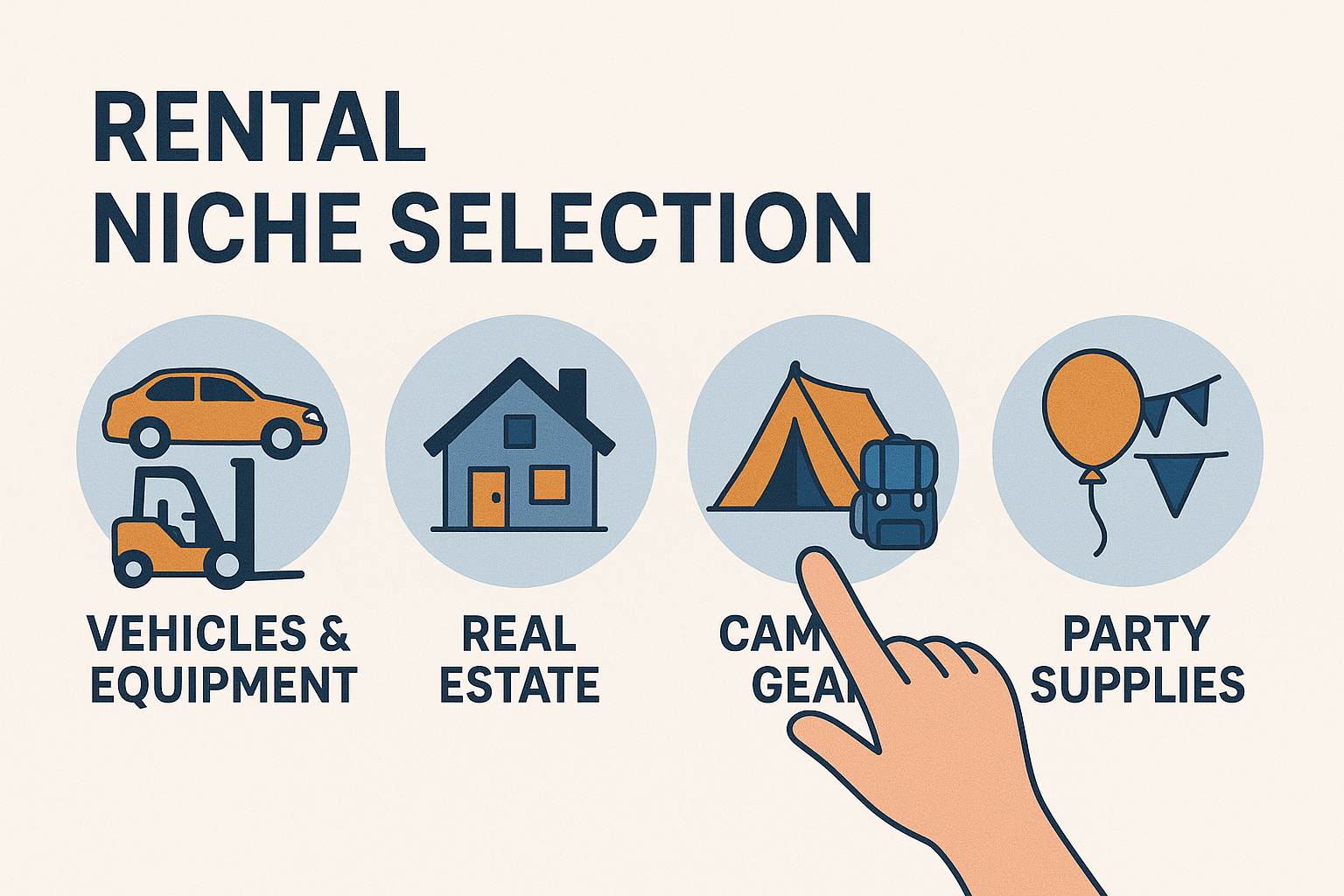
Vehicle and Equipment Rentals
People frequently rent:
- Cars, vans, trucks, and RVs
- Construction tools and heavy machinery
- Electric scooters and bicycles
These markets are profitable but may require higher initial investment and proper licensing.
Real Estate and Property Rentals
This category includes:
- Vacation homes (Airbnb-style)
- Long-term residential leasing
- Office and event space rentals
It’s highly competitive but lucrative if you offer unique value or location.
Niche & Seasonal Rentals
Creative entrepreneurs are making money with:
- Camping equipment
- Wedding and party supplies
- Costumes and props
- Medical devices (like crutches or wheelchairs)
- Electronics (projectors, gaming consoles)
These niches have lower barriers to entry and can often be run from home.
How to Conduct Market Research
Before launching, you must understand:
- What people want to rent in your area
- Your competitors’ pricing and policies
- Who your target customers are
Use tools like Google Trends, Facebook Groups, and local classifieds (e.g., Craigslist) to uncover demand. Conduct surveys, run small-scale tests, or list items on marketplaces to validate your ideas.
This is a very important part that you don’t want to skip, so if you are not sure how to do it, you can check: How to Do Market Research: A Complete Beginner’s Guide
Business Planning for a Rental Startup
A clear, detailed business plan is your roadmap to success. It should include:
- Your mission and vision
- Niche focus and value proposition
- Financial projections
- Pricing and marketing strategies
- Startup and operational costs
- Scalability potential
Even if you’re starting small, treating your rental venture like a real business is key to long-term success.
Legal Requirements and Licenses
Rental businesses come with legal responsibilities. You may need:
- Business registration (LLC, Sole Proprietor, etc.)
- Insurance coverage for theft, damage, and liability
- Rental agreements or contracts to protect your assets
- Permits or licenses depending on your region and niche
Consult a local business advisor or attorney to ensure you’re fully compliant.
Sourcing and Managing Inventory
Your inventory is your lifeblood. Options include:
- Buying new or used items outright
- Leasing from wholesalers
- Partnering with owners (peer-to-peer model)
Keep track of:
- Condition and maintenance
- Storage space and logistics
- Availability and downtime
Efficient inventory management ensures happy customers and high ROI (return of investment)
Setting Rental Pricing Strategies
Your pricing should reflect:
- Market rates
- Usage frequency
- Item wear and tear
- Value-added services (like delivery or setup)
Typical models include:
| Pricing Type | Description |
|---|---|
| Flat daily/weekly | Simple and transparent |
| Tiered pricing | Lower rates for longer rentals |
| Deposit-based | Security against damage or late return |
| Subscription model | For recurring users |
Offering bundles or discounts can help you compete and retain customers.
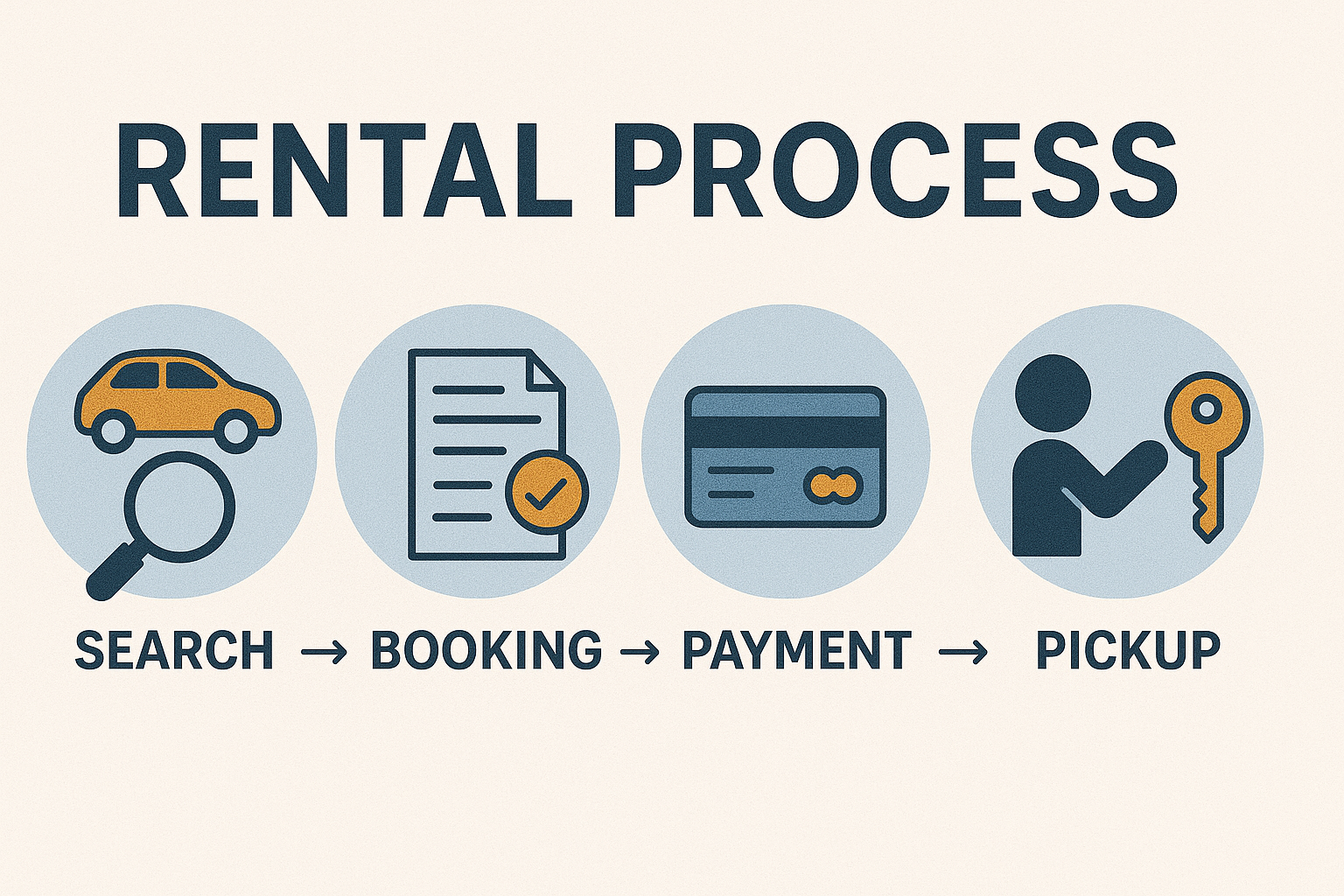
Creating a Website and Booking System
Having an online presence builds trust and allows for automation. Your website should feature:
- Clear product listings with images
- Online booking and availability calendar
- Secure payment gateway
- Mobile-friendly design
Consider using platforms like Sharetribe, WordPress + WooCommerce, or specialized rental software to get started quickly.
Marketing Your Rental Business
A great product won’t succeed without exposure. Focus on:
- SEO to rank for local rental keywords
- Google Business Profile to appear on maps
- Social media like Instagram and TikTok for visual appeal
- Referral programs to incentivize happy customers
- Paid ads to target new customers quickly
Consistency is key—stay visible and engage with your audience.
Building Customer Trust and Retention
Building trust is vital for any rental business. Customers are handing over money for temporary access to something valuable—they need assurance that your service is reliable. Here’s how to win and keep their trust:
- Use clear, detailed rental agreements to avoid misunderstandings.
- Offer prompt and professional customer service.
- Collect and display positive reviews on your website and social platforms.
- Implement loyalty programs for frequent renters.
- Communicate proactively about pickup, returns, deposits, and expectations.
Transparency, consistency, and good communication can turn one-time renters into repeat customers.
Tools and Software for Management
Streamlining your operations with the right tools can save time and boost profits. Here are must-have software solutions:
| Tool Type | Popular Options | Use Case |
|---|---|---|
| Inventory Management | Rentle, EZRentOut, Booqable | Track items, status, and usage |
| Booking & Scheduling | Acuity, Square Appointments, Checkfront | Accept reservations online |
| Payment Processing | Stripe, PayPal, Square | Accept and manage payments |
| CRM | Zoho, HubSpot | Manage customer relationships |
| Accounting | QuickBooks, Wave, Xero | Track revenue and expenses |
Automation reduces errors and frees you up to focus on growth.
Common Mistakes to Avoid
Even seasoned entrepreneurs stumble. Here are pitfalls to watch out for:
- Underestimating maintenance costs
- Lack of proper contracts or insurance
- Poor inventory tracking
- Overpricing or underpricing
- Ignoring customer feedback
- Choosing a saturated or low-demand niche
Awareness of these common traps can save you time, money, and frustration.
FAQs About Starting a Rental Business
1. Do I need a license to start a rental business?
Yes, most rental businesses require a business license, and depending on the niche, you may need additional permits or insurance.
2. How much money do I need to start?
You can start small with as little as $500–$1,000 for low-cost niches like party supplies or electronics. More capital is needed for vehicles or real estate.
3. Can I run it part-time?
Absolutely! Many rental businesses can begin as side hustles and grow into full-time ventures.
4. What happens if someone damages my equipment?
Use rental contracts with damage clauses and require a refundable security deposit. Insurance can also cover high-value items.
5. Is an online platform necessary?
Yes, having a website or at least a social media presence increases trust, visibility, and booking efficiency.
6. What’s the best rental niche in 2025?
It depends on your location and skills, but trending niches include electric vehicle rentals, camping gear, and home office equipment.
Conclusion: Start Small, Think Big
Starting a rental business in 2025 is one of the smartest ways to tap into the booming sharing economy. Whether you’re working with a garage full of gear or a small collection of costumes, the path to profitability begins with one rental at a time.
Keep your operations lean, focus on customer experience, and scale at your own pace. With commitment and creativity, your rental business could become a steady income stream—or even your full-time career.
*Our website contains affiliate links. This means if you click and make a purchase, we may receive a small commission. Don’t worry, there’s no extra cost to you. It’s a simple way to continue bringing you quality content **
Disclaimer
The information provided in this post is for general informational purposes only and does not constitute financial, business, or professional advice. While we’ve included example costs, profit margins, and industry averages, actual results will vary based on numerous factors — including your local market, competition, customer base, product quality, and marketing efforts.
There are no guarantees of income or business success. You should always do your own research, create a detailed business plan, and consult qualified professionals before making financial or business decisions.

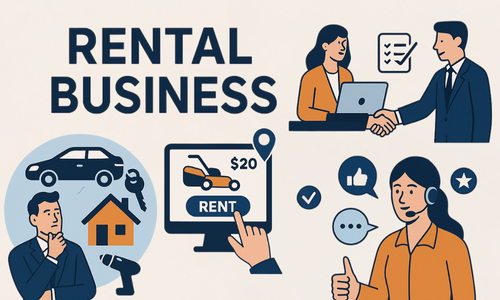


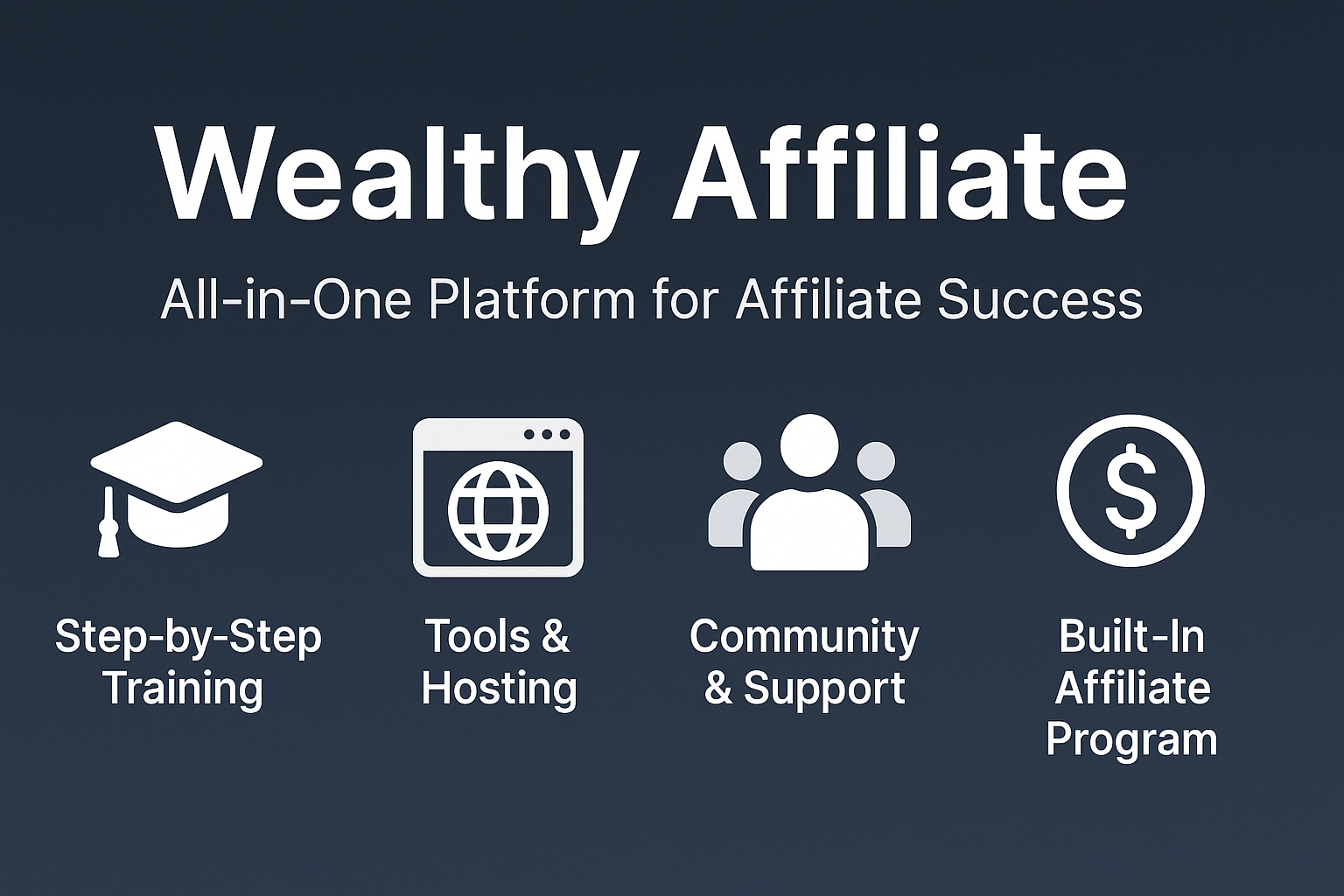

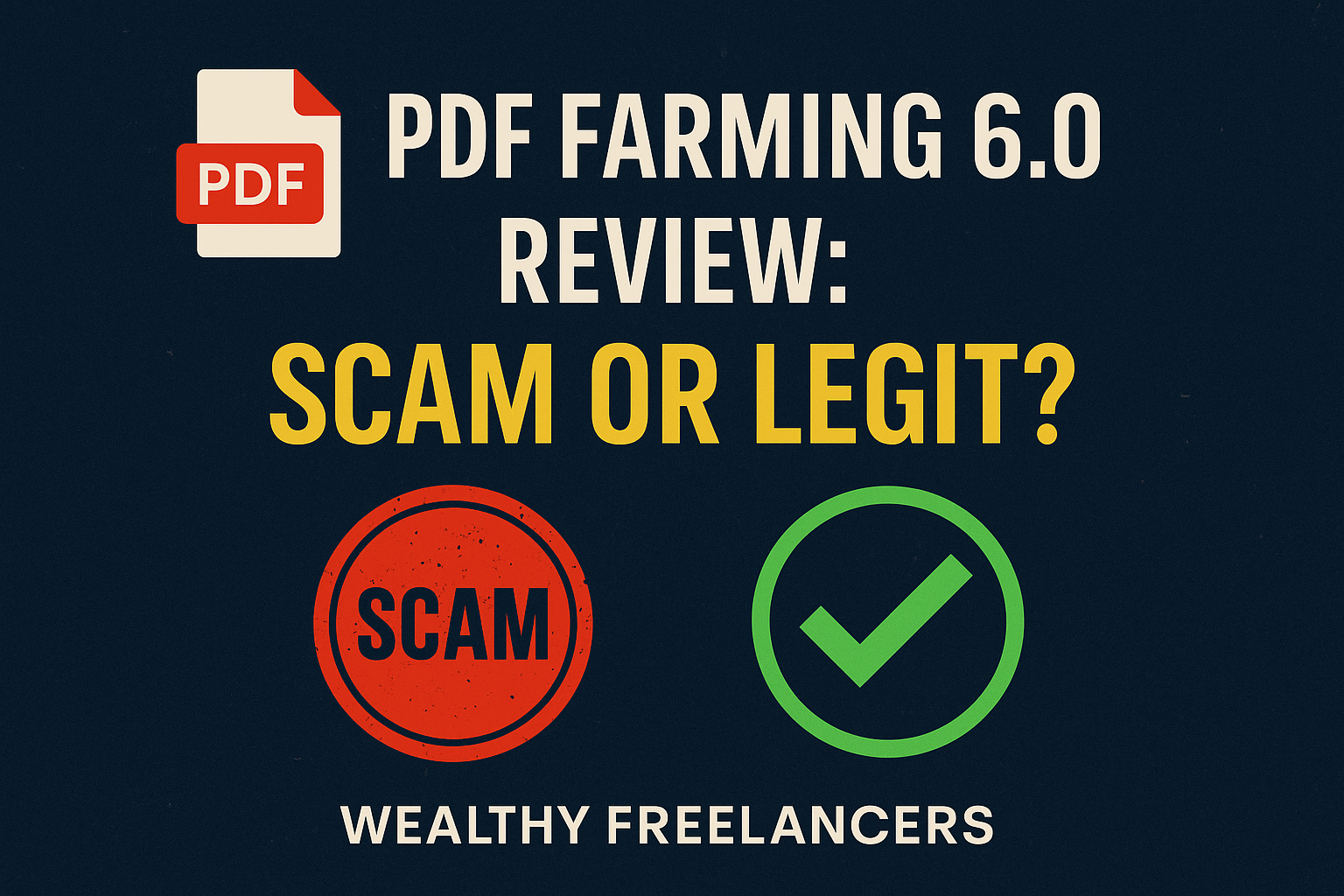

Leave a Reply